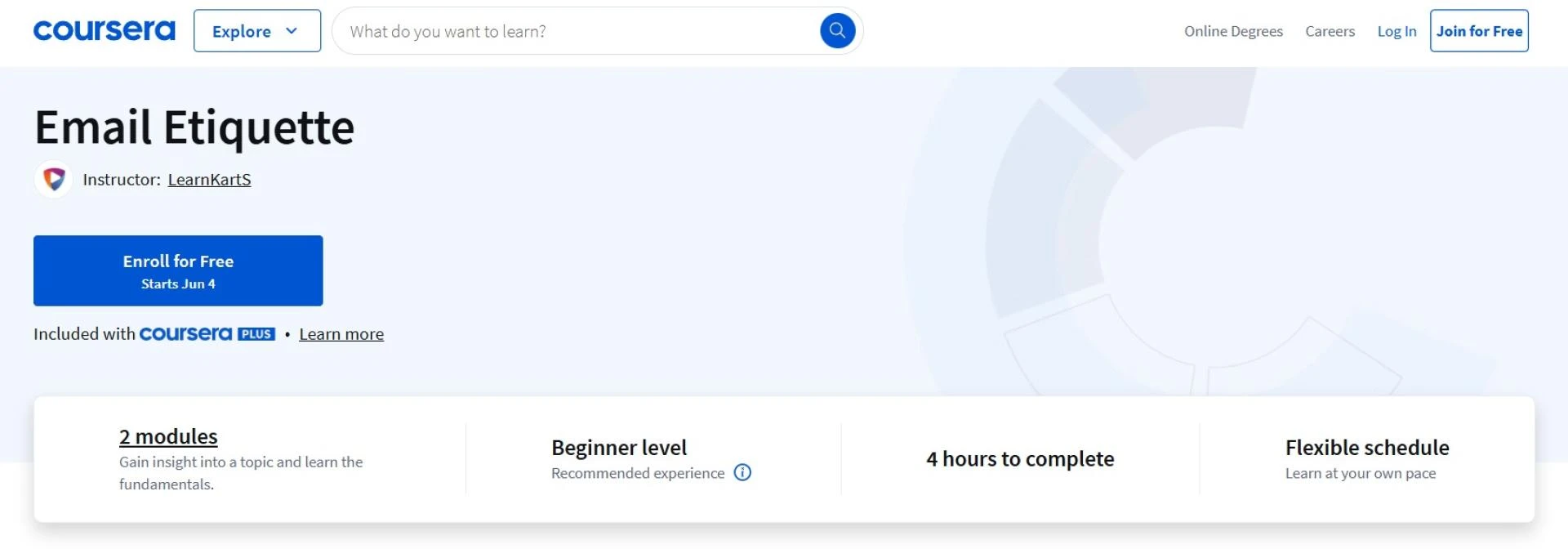In Bengaluru, a junior analyst sent the whole team a report on the project while the office was bustling. But one misspelled sentence caused a stir: she said, "The client rejected the deliverable" when she meant, "The client requested a revision."
Within minutes, managers were scrambling to find answers, and soon, there were a lot of emails. In this standard case of communication gone wrong, it's not because someone meant to be rude but because they didn't know how to use email properly.
As digital communication becomes more critical in the workplace, especially in hybrid or remote models, it is no longer a choice but to learn proper professional email etiquette. This is a crucial skill that can either bring people together or tear them apart.
Let's look at how good Email Etiquette Skills can make communication, teamwork, and the culture of any office much better.
1. Sets the Right Tone for Culture at Work
The way you write in emails shows how skilled you are and how much you respect other people. A clear, polite message makes people feel good, while an email that is rushed or abrupt is easy to misunderstand.
A well-written message with the right greeting, polite words, and a formal ending can help build a culture of respect for each other.
Email etiquette tip: Use greetings like “Hi Priya” or “Dear Mr. Sen,” and close with “Kind regards” or “Sincerely.”
2. Makes Things Clearer and Less Confusing
There shouldn't be any confusion in emails about what, why, and next steps. When you use clear formatting, short language, and well-organized material, you avoid confusion and the need for a lot of follow-ups.
McKinsey says that professionals spend almost 28% of their workweek on email. This is usually because badly written emails lead to long lines of clarification.

Email etiquette example: Instead of writing, “Let me know what you think,” write, “Please share your approval or feedback on the attached proposal by Friday.”
3. Helps Customers Trust You and Improves Your Professional Image
Emails that are well-written and easy to understand are often the first thing people notice about you, especially on cross-functional or online teams. Even if your work is excellent, mistakes in grammar, spelling, or tone can hurt your trustworthiness.
When sending a professional email, you should proofread it, stay away from slang, and use the same style all the time.
4. Makes Teams More Productive
Imagine that an unclear email causes a deliverable to be late because people on the team don't know who is guilty. Writing that is clear and focused on action gets things done faster with less back and forth.
It is easier to communicate when you know how to write emails with clear subject lines, specific deadlines, and bullet points. This is especially true for big teams that work in different time zones.
Email etiquette tip: Use clear subject lines, such as "Sales Report Q2: Review Needed by Monday."
5. Stops Legal and HR Problems
Emails that are rude or inappropriate can put workers and companies at risk of significant trouble. Jokes that don't hit the mark, comments that aren't okay, or careless responses can be seen as harassment or bias.
As part of compliance programs, many HR offices now recommend email etiquette training to prevent employees from getting into legal trouble and promote courteous communication.
Email etiquette tip: Don't send anything in an email that you wouldn't want to read out loud in a trial or a boardroom.
6. Encourages Working Together and Giving Good Feedback
It can feel harsh or accusatory when feedback is written poorly, such as "This is wrong." Saying, "Consider revising this section for clarity," on the other hand, encourages improvement without making people feel bad about their work.
If you know how to use email properly at work, you can make sure that conversation builds trust instead of breaking it.
Email etiquette example: Before making comments in feedback emails, say something like, "Thanks for your hard work on this report."
7. Helps with Global Communication and Understanding Other Cultures
Tone, style, and even grammar can be interpreted differently by people in global teams. What people in one culture think is funny might be rude to people in another.
Learning the email etiquette rules will help you interact properly with people from other cultures. Intercultural conversation training is a valuable skill for individuals working in global settings and is often incorporated into email writing courses.
How Getting Trained Can Help?
Even though some professionals learn how to use email on the job, a lot of them never get official training. Because of this, making mistakes becomes normal. A study in structured email etiquette teaches the right and wrong ways to write emails, covering everything from tone and structure to cultural sensitivity and legal risks.

Courses like Coursera's Email Etiquette Training can help you improve your email writing skills by giving you real-life examples, scenarios, and tasks that you can do online.
In a world where digital communication is a big part of professional standards, getting the right training can help you not only improve your communication skills but also your job chances.
That being said
Email politeness is an integral part of good communication because it helps keep the peace at work, encourages teamwork, and creates a more respectful environment. Many people forget how valuable this skill is.
Now, before you click "Send," ask yourself: Does my email make it easier for us to talk, or does it just make more noise?


